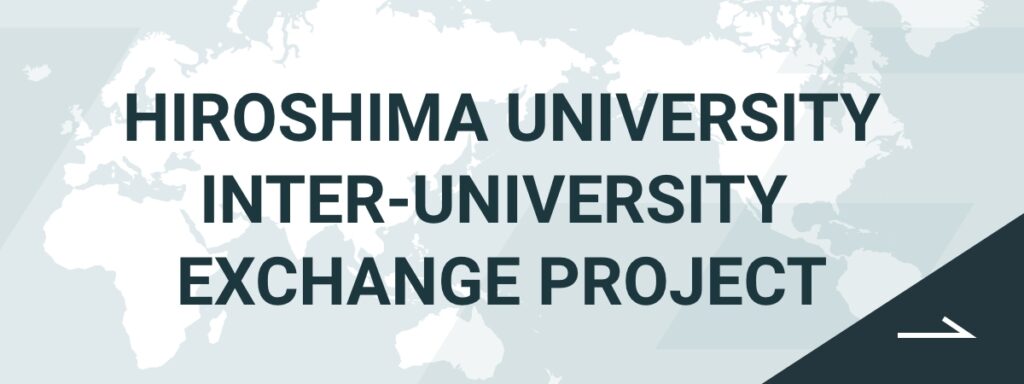Objective
This program is an international, collaborative initiative aimed at guiding students into agile entrepreneurship and by doing so, nurtures internationally minded future professionals, who actively seek peace and who have the tools needed to take on future global challenges. Agile entrepreneurship emphasizes diversity and the ability to see things from a broad perspective. The program is constructed of several stages, where each stage builds upon, and strengthens the knowledge gained in the previous one through repeated learning and practice.
This program is a hybrid format human resource development program combining online and offline modules, including short-term training, workshops, exchange programs, and internships at or through the five partnering universities in four countries: Hiroshima University in Japan, The University of Sheffield in The United Kingdom, Birla Institute of Technology and Science, Pilani campus, and Indian Institute of Management, Bangalore in India, and The University of New South Wales in Australia. Themes covered at each university vary, but include global issues such as carbon neutrality, SDGs, disaster prevention and mitigation. Each university also incorporates elements from their local cultural and social characteristics into the program.
Features
- Linking four sub-programs (COIL-type collaborative learning, student-proposed workshops, semester abroad, and internships) into a comprehensive, agile educational program that is built upon step-by-step learning, gradually progressing from basics to real-life application.
- Implementing student-lead workshops held in Japanese and English, respectively in Japan and India, for international collaborative learning that enhances cross-cultural agility. Focus on the global issues of carbon neutrality, SDGs, as well as disaster prevention and mitigation.
- Adopting best practices from experiences gained during the Corona pandemic, that combine benefits of both online and offline learning in all agile educational programs.
- Collaboration across industry-government-academia spectrum to provide internship opportunities of international standard. Combining the university’s industry-government-academia consortium and Global internship program (G-Ecbo) with the internship programs of partner universities.
- Utilizing a pioneering digital certificate system, as well as the Hiroshima University developed BEVI (Beliefs, Events, and Values Inventory) learning effectiveness measurement analysis for assessing competency gains and learning outcomes before and after the program.
